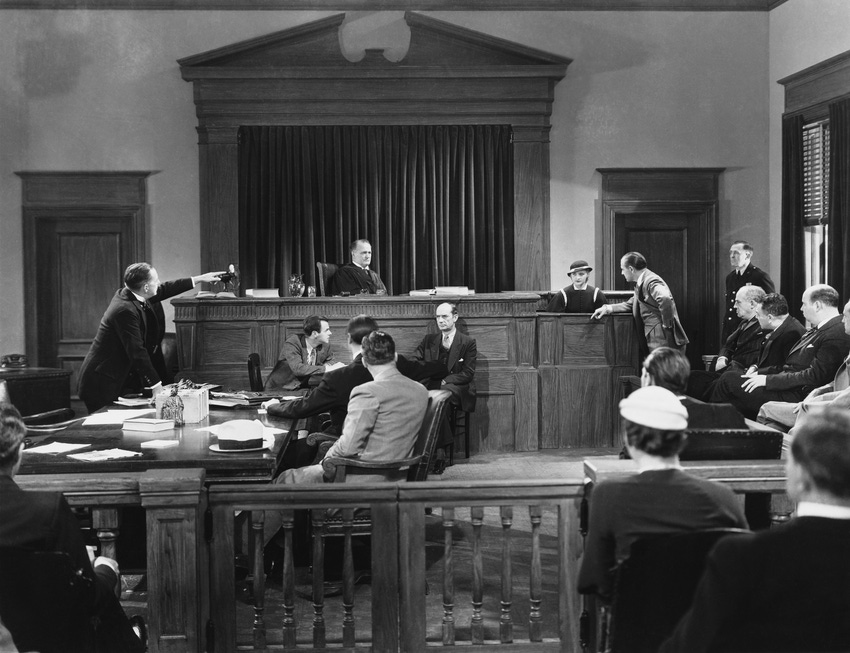The trial hasn’t even begun yet and the lawyers are already at each other throats as AT&T files a pre-trial briefing attacking the basis of the Department of Justice case.
March 13, 2018

The trial hasn’t even begun yet and the lawyers are already at each other throats as AT&T files a pre-trial briefing attacking the basis of the Department of Justice case.
There had been rumours over the last couple of weeks that the telco would use President Trump’s perceived bias against the $85 billion Time Warner acquisition as a defence against the DoJ, but after a quick ‘Control+F’ none of ‘Trump’, ‘President’ or ‘White House’ appear in the document, aside from a footnote referring to Reed Hastings’ President title at Netflix. Instead, the telco has taken the more sensible route of attacking the credibility of foundations at the base of the DoJ objections.
The filing reads:
“There is no fact-based evidence that this merger will harm competition. Nothing will be withheld from competitors; consumer prices will not go up. To the contrary, the government now concedes it would not be profitable for the new company to withhold its television networks from pay-TV distributors and that the new company’s prices to its own television customers will go down. As a result, the government’s suit to block this merger is not only baseless in fact, but it is affirmatively contrary to consumer welfare, making it difficult for the government even to allege a viable antitrust claim, much less prove one.”
The focus of this attack is of course at the central pillar of the case against the acquisition; AT&T would not play nice with the rest of the industry. The theory is that AT&T is acquiring some pretty notable titles through the deal, some of which are sold to distributors, some of whom would be considered AT&T competitors. Withholding this content would be considered poor form, though government experts have since rubbished this claim.
The idea of collaborative competition is one which has been gaining some traction in recent months, and if the telcos are going to make any money out of buying organizations like Time Warner they are going to have to do business with competitors. This point was raised by the government economic expert, and emphasised by the AT&T lawyers. The argument no longer stands firm as the government case has been undermined by one of its own.
“Now, what remains of the government’s case, ‘like a Persian cat with its fur shaved, is alarmingly pale and thin’,” the filing reads slightly obnoxiously.
What is slightly more believable is that instead of withholding content from competitors it would use the position to hold competitors to ransom, demanding more than what would be considered fair price. Of course, AT&T has pointed to the fact that Time Warner would not be able to tolerate such business practises and the acquisition is more about cost-synergies. We find it tough to believe AT&T would not use any acquired asset to its advantage, but only time will tell as to whether this is a good enough reason to block the deal.
Perhaps the most interesting claim from AT&T however is that should the government block the deal it would be worse for the consumer; the Department of Justice is the one which is encouraging an anticompetitive environment.
If the argument is that streamlining the industry is would decrease the choice for the consumer, and therefore decrease competition, this transaction would of course be bad. However, AT&T argues that by streamlining the industry and creating a new entertainment beast, competitors would be forced to come up with new initiatives (perhaps lower pricing or additional bundles), therefore it would be in the consumers interest. Just when we were thinking AT&T were doing this to make more money, it turns out they are just trying to make things better for the consumer, who knew.
Such posturing and claims are hardly unusual in the build up to a trial, but whether it has any impact remains to be seen. You would hope the Department of Justice can come up with a better argument than it has at the moment, as it seem to be in a very strong position as it stands.
About the Author(s)
You May Also Like








.png?width=300&auto=webp&quality=80&disable=upscale)


_1.jpg?width=300&auto=webp&quality=80&disable=upscale)


.png?width=800&auto=webp&quality=80&disable=upscale)